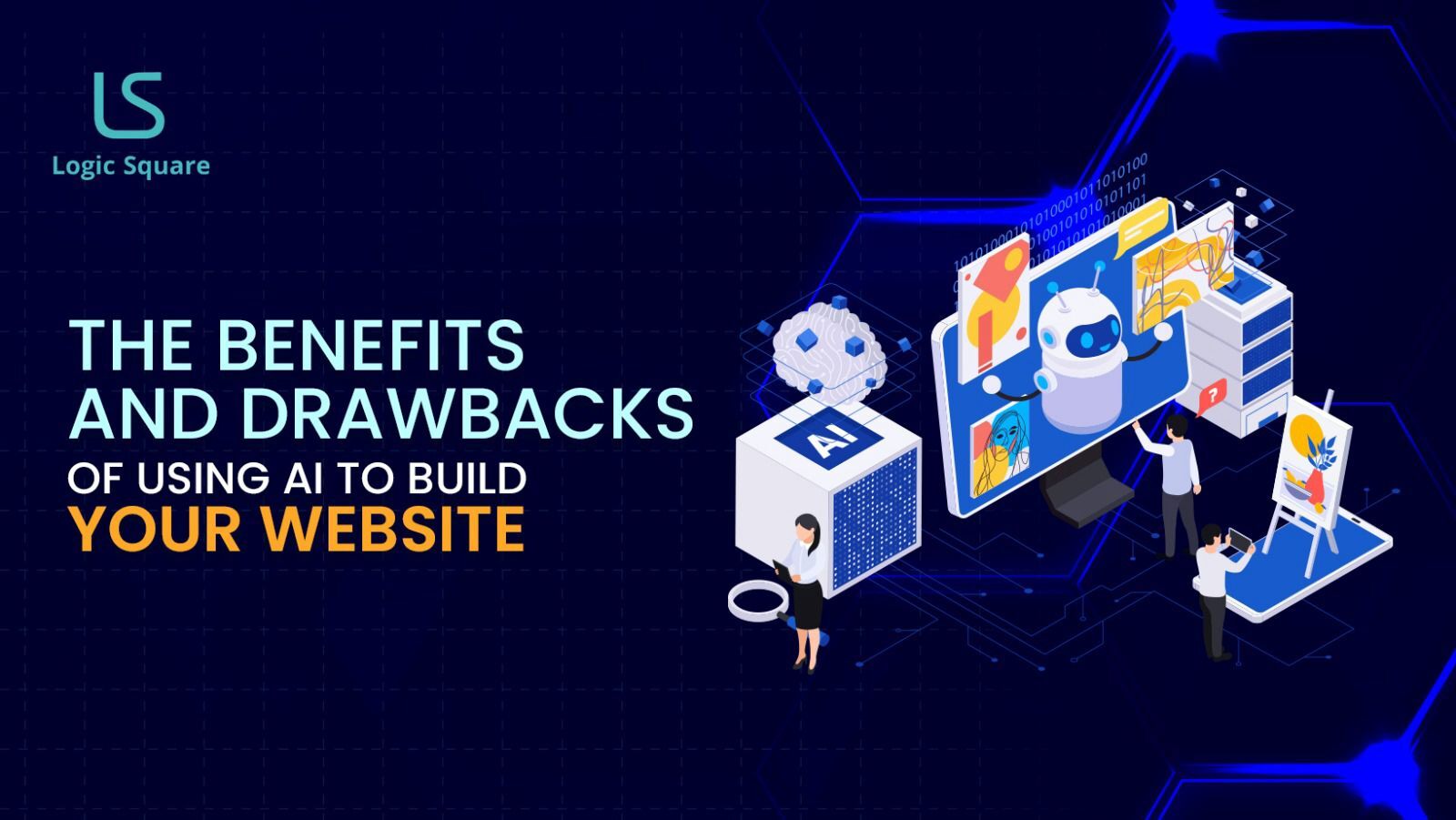Enterprise Digital Transformation: Defining the Concept
The phrase “enterprise digital transformation” itself conveys the idea. It is a strategy that is implemented by businesses to transform their operations, compete, and deliver value to their customers. This approach predominantly relies on contemporary technologies, with some taking it a step further by incorporating emerging technologies. This isn’t just a one-time thing but an ongoing process that involves using advanced digital tools to make internal processes better, improve how customers interact with us, and keep up with changes in how business works.
Enterprises ensure digital transformation to remain competitive and evolve according to market dynamics. This allows for personalized experiences, improved customer service, and the development of innovative products and services that directly address customer needs. Internally, digital transformation streamlines workflows, automates repetitive tasks and fosters better collaboration among teams. This translates to increased efficiency, reduced costs, and a more agile workforce that can quickly adapt to changing market conditions.
Table of Contents
ToggleKey Elements of Enterprise Digital Transformation
Enterprise digital transformation involves many elements, making it a complex process. Here are some of the most important elements:
1: Consumer Experience
It’s evident that businesses use digital platforms and technologies to ease consumer experience. They use it to gain insights into customer needs and communicate directly to assist faster.
As per Harvard Business Review, 40% of respondents said that improved customer experience was the top priority for digital transformation. This clearly indicates that client experience is an essential part of digital transformation.
2: Data Curation & Analytics
Data curation, in simple terms, is cleaning up your messy desk before organizing it. It takes all that new information from the transformation and makes sure it’s accurate, complete, and easy to understand. This is like labelling folders – you know exactly where everything is and can find it quickly.
Data analytics is like looking at those organized folders and realizing you have more sales leads from a certain area. It helps you see patterns and trends in the data so you can make better decisions. This is like using the information on your desk to figure out how to be more productive. In short, data curation and analytics are the secret weapons for making sense of all the information that comes with digital transformation and using it to succeed in the new digital world.
3: Business Agility
Business environments constantly change due to new technologies, regulatory changes, consumer preferences, and economic shifts. Several other reasons are stiff competition, pandemic situations and more. To overcome these changes, enterprises need to respond effectively to new situations and opportunities. This requires them to use new-age digital technologies to streamline their processes, automate their tasks, optimize their resources, and enable collaboration across their teams and departments.
4: Process Optimization
Once you want the digital transformation of your enterprise, you can’t ignore process optimization. It’s like fine-tuning the gears of a machine to make it run smoother and faster. By focusing on process improvement, companies can work smarter, not harder, to achieve their goals.
The first step in this journey involves looking closely at current workflows to identify any areas that could be working better. It’s like taking a magnifying glass to see where things might be getting stuck or taking too long. Once these areas are pinpointed, the next step is to make changes that will simplify and speed up these processes. This might involve using new tools or technology to automate tasks or finding ways for different departments to work together more seamlessly.
5: Competition from Market
The digital economy has changed the marketing dynamics. It has created new realms for businesses to gain new markets, extend their reach to new consumers, and offer new value propositions. Meanwhile, this situation has also created challenges for businesses, such as threats from new competitors and existing competitors who are more agile. This is why enterprises need to transform their operations digitally to gain a competitive advantage and stand out from other competitors while creating a unique value for their customers.
Modern-Day Digital Technologies with Applications
- Cloud Computing: The term cloud computing is referred to as providing computing services over the internet. This often includes servers, storage, networking, software and intelligence. Cloud computing allows businesses to access flexible IT resources as needed without investing in hardware or software. It delivers numerous advantages, including cost efficiency, enhanced performance, and reliability. These functionalities make it a great tool for the enterprise who work overseas.
- Artificial intelligence: It’s a buzzword now in the tech world. It is a technology that uses machine learning from the existing patterns. It can be further used for data analysis, predictive analytics, and automation. It is useful for enterprises to enhance efficiency in everyday operations.
- Big Data Analytics: It includes tools that are used for gathering, managing and analyzing large amounts of data to gain insights and information. It is one of the most important tools for understanding consumer behaviour.
- Blockchain: It is a token-based decentralized ledger that records transactions across a P2P network. It is useful for enterprises in maintaining a secure record of transactions and ensuring data integrity.
- 5G NR: Also known as 5G New Radio, is crucial for providing faster and reliable internet connectivity with very low latency. It supports fast data speeds that are useful in many enterprise applications.
- Digital Twin: It involves creating virtual replicas of physical assets or processes to simulate, analyze, and optimize performance in real time. This has applications that can be used in manufacturing, urban planning, and product lifecycle management.
- Edge Computing: It is a great tech that allows IoT devices to process data closer to where it was generated. This situation allows devices to communicate with each other seamlessly with reduced latency and lesser bandwidth. It is important in industrial IoT and autonomous vehicles.
What Benefits Does Digital Transformation Offer to Enterprises?
Enterprise digital transformation isn’t just a buzzword; it’s a strategic approach that empowers businesses to leverage technology for significant improvements.
But what exactly does digital transformation offer? Here are some key benefits:
Offers Freedom from Legacy Systems: Numerous research suggests that one-third of organizations across the world still utilize legacy systems for their business processes. If they don’t monetize their ongoing systems by employing a digital transformation approach, they may face long-term growth challenges and cause inefficiencies.
Streamlined Workflow: With enterprise digital transformation, workflows become smoother and more convenient. Digital tools can automate repetitive tasks, reduce bottlenecks, and provide real-time visibility into processes, helping organizations streamline their operations from end to end.
Enhanced Efficiency: Digital transformation optimizes operations, enabling organizations to achieve more with fewer resources. By digitizing processes, eliminating manual tasks, and leveraging data analytics, businesses can enhance efficiency across various departments, leading to cost savings and improved performance.
Flexibility: Digital transformation fosters flexibility by enabling employees to work from anywhere, anytime, using various devices. Cloud-based solutions, mobile applications, and collaboration platforms empower teams to collaborate seamlessly, adapt to changing market conditions, and respond quickly to customer needs.
Productivity: With the right digital tools and technologies in place, employees can work more productively. Automation of repetitive tasks, access to real-time data, and streamlined communication channels contribute to increased productivity levels within organizations, allowing them to accomplish more in less time.
Enhanced Collaboration: Digital transformation promotes collaboration by breaking down communication barriers and facilitating teamwork across geographies and departments. Collaboration platforms, project management tools, and video conferencing solutions enable employees to share ideas, coordinate tasks, and work together effectively, driving innovation and achieving common goals.
Increased Agility: In a digitally transformed enterprise, agility becomes a key competitive advantage. Organizations can quickly adapt to market changes, customer preferences, and emerging trends by leveraging digital technologies. Agile methodologies, data-driven decision-making, and continuous innovation enable businesses to stay ahead of the curve and capitalize on new opportunities in today’s paced environment.
Deeper Customer Understanding: Digital transformation equips businesses with powerful tools for gathering, analyzing, and leveraging customer data. Through advanced analytics and machine learning algorithms, organizations can gain deeper insights into customer behaviour, preferences, and pain points. By understanding customers on a more profound level, businesses can tailor their products, services, and marketing strategies to meet specific needs, enhance customer satisfaction, and build long-lasting relationships.
Personalized Customer Experiences: With the wealth of data available through digital channels, businesses can create personalized experiences for their customers. Through techniques such as targeted marketing campaigns, dynamic website content, and recommendation engines, enterprises can deliver relevant and engaging experiences tailored to each individual customer. Personalization enhances customer engagement, drives loyalty, and increases conversion rates, ultimately leading to improved business outcomes and competitive advantage.
Scalability: Digital transformation enables businesses to scale their operations more efficiently and cost-effectively. Cloud computing, in particular, provides scalable infrastructure and services that can grow or shrink in response to changing business needs. Whether it’s entering into new markets, handling increased customer demand, or launching new products and services, digital technologies empower enterprises to scale their operations seamlessly without significant upfront investments in infrastructure or resources. This scalability allows businesses to adapt quickly to changing market conditions and seize growth opportunities as they arise.
Keeping up with the latest trends is essential for businesses aiming for success. For them, digital transformation holds the answer! In today’s competitive market, having a unique approach can greatly benefit businesses. Therefore, companies that embrace digital transformation gain a competitive advantage by incorporating cutting-edge technologies, swiftly adapting to market shifts, and offering exceptional products and services.
New Market Opportunities
The world’s transformation enables businesses to evolve themselves and establish new market opportunities. By leveraging cutting-edge technologies like AI, businesses can feature for modern audiences. Enterprises can scale up their operations with cloud-based infrastructure. They can use its accessibility feature to provide services to users with the internet. They can disperse their workload across multiple servers to meet the elevated demand.
What Are The Challenges That Businesses Face With Adopting Digital Architecture?
Adopting digital architecture sounds promising, right?
However, digitizing enterprises poses a significant challenge, particularly for large-scale enterprises with multiple departments, global presence, and vast no. of employees. Let’s see some of the key obstacles faced in digital transformation.
- Resistance To Change: When discussing the integration of new technologies, it’s common for a significant portion of individuals to exhibit resistance to change. This reluctance often stems from their familiarity with current methods and a hesitation to learn new concepts.
- Workflow Disruption: Implementing new technologies can disrupt already established workflows. This can certainly cause workflow disruptions and hamper overall productivity.
- Interoperability Issues: Enterprises often use tools from multiple vendors. Due to this situation, companies often need help with interoperability issues. These can lead to data silos, inefficiencies, and increased operational costs, as businesses may need to develop custom integration solutions.
- Data Privacy: While running an enterprise, you deal with many employees and clients. Digitalization of the data needs to be secured as per the local data protection laws. Not abiding by these laws and regulations can end up resulting in data theft or heavy penalties.
- Skill Gaps: The demand for skilled professionals in AI and data analytics is huge right now. The shortage of such talent can delay digital transformation projects and make it difficult to fully leverage new technologies. This will further reflect operational inefficiencies.
Transform Your Business With Logic Square Technologies
Ready to remain competitive and thrive in today’s business landscape? Digital transformation is no longer optional – it’s key to unlocking new levels of efficiency, agility, and growth.
Logic Square Technologies can be your trusted partner on this journey. Our team of experts will help you identify and implement the right digital solutions to transform your operations, empower your workforce, and elevate your customer experience. Take the first step towards a future-proof business. Contact Logic Square Technologies today to achieve your digital transformation goals.
Enterprise Digital Transformation: Defining the Concept
The phrase “enterprise digital transformation” itself conveys the idea. It is a strategy that is implemented by businesses to transform their operations, compete, and deliver value to their customers. This approach predominantly relies on contemporary technologies, with some taking it a step further by incorporating emerging technologies. This isn’t just a one-time thing but an ongoing process that involves using advanced digital tools to make internal processes better, improve how customers interact with us, and keep up with changes in how business works.
Enterprises ensure digital transformation to remain competitive and evolve according to market dynamics. This allows for personalized experiences, improved customer service, and the development of innovative products and services that directly address customer needs. Internally, digital transformation streamlines workflows, automates repetitive tasks and fosters better collaboration among teams. This translates to increased efficiency, reduced costs, and a more agile workforce that can quickly adapt to changing market conditions.
Key Elements of Enterprise Digital Transformation
Enterprise digital transformation involves many elements, making it a complex process. Here are some of the most important elements:
1: Consumer Experience
It’s evident that businesses use digital platforms and technologies to ease consumer experience. They use it to gain insights into customer needs and communicate directly to assist faster.
As per Harvard Business Review, 40% of respondents said that improved customer experience was the top priority for digital transformation. This clearly indicates that client experience is an essential part of digital transformation.
2: Data Curation & Analytics
Data curation, in simple terms, is cleaning up your messy desk before organizing it. It takes all that new information from the transformation and makes sure it’s accurate, complete, and easy to understand. This is like labelling folders – you know exactly where everything is and can find it quickly.
Data analytics is like looking at those organized folders and realizing you have more sales leads from a certain area. It helps you see patterns and trends in the data so you can make better decisions. This is like using the information on your desk to figure out how to be more productive. In short, data curation and analytics are the secret weapons for making sense of all the information that comes with digital transformation and using it to succeed in the new digital world.
3: Business Agility
Business environments constantly change due to new technologies, regulatory changes, consumer preferences, and economic shifts. Several other reasons are stiff competition, pandemic situations and more. To overcome these changes, enterprises need to respond effectively to new situations and opportunities. This requires them to use new-age digital technologies to streamline their processes, automate their tasks, optimize their resources, and enable collaboration across their teams and departments.
4: Process Optimization
Once you want the digital transformation of your enterprise, you can’t ignore process optimization. It’s like fine-tuning the gears of a machine to make it run smoother and faster. By focusing on process improvement, companies can work smarter, not harder, to achieve their goals.
The first step in this journey involves looking closely at current workflows to identify any areas that could be working better. It’s like taking a magnifying glass to see where things might be getting stuck or taking too long. Once these areas are pinpointed, the next step is to make changes that will simplify and speed up these processes. This might involve using new tools or technology to automate tasks or finding ways for different departments to work together more seamlessly.
5: Competition from Market
The digital economy has changed the marketing dynamics. It has created new realms for businesses to gain new markets, extend their reach to new consumers, and offer new value propositions. Meanwhile, this situation has also created challenges for businesses, such as threats from new competitors and existing competitors who are more agile. This is why enterprises need to transform their operations digitally to gain a competitive advantage and stand out from other competitors while creating a unique value for their customers.
Modern-Day Digital Technologies with Applications
- Cloud Computing: The term cloud computing is referred to as providing computing services over the internet. This often includes servers, storage, networking, software and intelligence. Cloud computing allows businesses to access flexible IT resources as needed without investing in hardware or software. It delivers numerous advantages, including cost efficiency, enhanced performance, and reliability. These functionalities make it a great tool for the enterprise who work overseas.
- Artificial intelligence: It’s a buzzword now in the tech world. It is a technology that uses machine learning from the existing patterns. It can be further used for data analysis, predictive analytics, and automation. It is useful for enterprises to enhance efficiency in everyday operations.
- Big Data Analytics: It includes tools that are used for gathering, managing and analyzing large amounts of data to gain insights and information. It is one of the most important tools for understanding consumer behaviour.
- Blockchain: It is a token-based decentralized ledger that records transactions across a P2P network. It is useful for enterprises in maintaining a secure record of transactions and ensuring data integrity.
- 5G NR: Also known as 5G New Radio, is crucial for providing faster and reliable internet connectivity with very low latency. It supports fast data speeds that are useful in many enterprise applications.
- Digital Twin: It involves creating virtual replicas of physical assets or processes to simulate, analyze, and optimize performance in real time. This has applications that can be used in manufacturing, urban planning, and product lifecycle management.
- Edge Computing: It is a great tech that allows IoT devices to process data closer to where it was generated. This situation allows devices to communicate with each other seamlessly with reduced latency and lesser bandwidth. It is important in industrial IoT and autonomous vehicles.
What Benefits Does Digital Transformation Offer to Enterprises?
Enterprise digital transformation isn’t just a buzzword; it’s a strategic approach that empowers businesses to leverage technology for significant improvements.
But what exactly does digital transformation offer? Here are some key benefits:
Offers Freedom from Legacy Systems: Numerous research suggests that one-third of organizations across the world still utilize legacy systems for their business processes. If they don’t monetize their ongoing systems by employing a digital transformation approach, they may face long-term growth challenges and cause inefficiencies.
Streamlined Workflow: With enterprise digital transformation, workflows become smoother and more convenient. Digital tools can automate repetitive tasks, reduce bottlenecks, and provide real-time visibility into processes, helping organizations streamline their operations from end to end.
Enhanced Efficiency: Digital transformation optimizes operations, enabling organizations to achieve more with fewer resources. By digitizing processes, eliminating manual tasks, and leveraging data analytics, businesses can enhance efficiency across various departments, leading to cost savings and improved performance.
Flexibility: Digital transformation fosters flexibility by enabling employees to work from anywhere, anytime, using various devices. Cloud-based solutions, mobile applications, and collaboration platforms empower teams to collaborate seamlessly, adapt to changing market conditions, and respond quickly to customer needs.
Productivity: With the right digital tools and technologies in place, employees can work more productively. Automation of repetitive tasks, access to real-time data, and streamlined communication channels contribute to increased productivity levels within organizations, allowing them to accomplish more in less time.
Enhanced Collaboration: Digital transformation promotes collaboration by breaking down communication barriers and facilitating teamwork across geographies and departments. Collaboration platforms, project management tools, and video conferencing solutions enable employees to share ideas, coordinate tasks, and work together effectively, driving innovation and achieving common goals.
Increased Agility: In a digitally transformed enterprise, agility becomes a key competitive advantage. Organizations can quickly adapt to market changes, customer preferences, and emerging trends by leveraging digital technologies. Agile methodologies, data-driven decision-making, and continuous innovation enable businesses to stay ahead of the curve and capitalize on new opportunities in today’s paced environment.
Deeper Customer Understanding: Digital transformation equips businesses with powerful tools for gathering, analyzing, and leveraging customer data. Through advanced analytics and machine learning algorithms, organizations can gain deeper insights into customer behaviour, preferences, and pain points. By understanding customers on a more profound level, businesses can tailor their products, services, and marketing strategies to meet specific needs, enhance customer satisfaction, and build long-lasting relationships.
Personalized Customer Experiences: With the wealth of data available through digital channels, businesses can create personalized experiences for their customers. Through techniques such as targeted marketing campaigns, dynamic website content, and recommendation engines, enterprises can deliver relevant and engaging experiences tailored to each individual customer. Personalization enhances customer engagement, drives loyalty, and increases conversion rates, ultimately leading to improved business outcomes and competitive advantage.
Scalability: Digital transformation enables businesses to scale their operations more efficiently and cost-effectively. Cloud computing, in particular, provides scalable infrastructure and services that can grow or shrink in response to changing business needs. Whether it’s entering into new markets, handling increased customer demand, or launching new products and services, digital technologies empower enterprises to scale their operations seamlessly without significant upfront investments in infrastructure or resources. This scalability allows businesses to adapt quickly to changing market conditions and seize growth opportunities as they arise.
Keeping up with the latest trends is essential for businesses aiming for success. For them, digital transformation holds the answer! In today’s competitive market, having a unique approach can greatly benefit businesses. Therefore, companies that embrace digital transformation gain a competitive advantage by incorporating cutting-edge technologies, swiftly adapting to market shifts, and offering exceptional products and services.
New Market Opportunities
The world’s transformation enables businesses to evolve themselves and establish new market opportunities. By leveraging cutting-edge technologies like AI, businesses can feature for modern audiences. Enterprises can scale up their operations with cloud-based infrastructure. They can use its accessibility feature to provide services to users with the internet. They can disperse their workload across multiple servers to meet the elevated demand.
What Are The Challenges That Businesses Face With Adopting Digital Architecture?
Adopting digital architecture sounds promising, right?
However, digitizing enterprises poses a significant challenge, particularly for large-scale enterprises with multiple departments, global presence, and vast no. of employees. Let’s see some of the key obstacles faced in digital transformation.
- Resistance To Change: When discussing the integration of new technologies, it’s common for a significant portion of individuals to exhibit resistance to change. This reluctance often stems from their familiarity with current methods and a hesitation to learn new concepts.
- Workflow Disruption: Implementing new technologies can disrupt already established workflows. This can certainly cause workflow disruptions and hamper overall productivity.
- Interoperability Issues: Enterprises often use tools from multiple vendors. Due to this situation, companies often need help with interoperability issues. These can lead to data silos, inefficiencies, and increased operational costs, as businesses may need to develop custom integration solutions.
- Data Privacy: While running an enterprise, you deal with many employees and clients. Digitalization of the data needs to be secured as per the local data protection laws. Not abiding by these laws and regulations can end up resulting in data theft or heavy penalties.
- Skill Gaps: The demand for skilled professionals in AI and data analytics is huge right now. The shortage of such talent can delay digital transformation projects and make it difficult to fully leverage new technologies. This will further reflect operational inefficiencies.
Transform Your Business With Logic Square Technologies
Ready to remain competitive and thrive in today’s business landscape? Digital transformation is no longer optional – it’s key to unlocking new levels of efficiency, agility, and growth.
Logic Square Technologies can be your trusted partner on this journey. Our team of experts will help you identify and implement the right digital solutions to transform your operations, empower your workforce, and elevate your customer experience. Take the first step towards a future-proof business. Contact Logic Square Technologies today to achieve your digital transformation goals.





